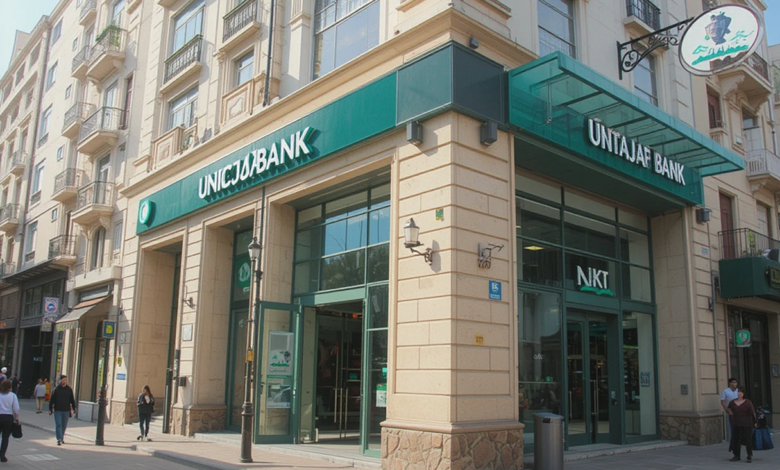Liberbank Unicaja: A New Era in Spanish Banking

In recent years, the Spanish banking sector has undergone significant transformations, and one of the most notable mergers in this industry has been between Liberbank and Unicaja Banco. This merger, finalized in 2021, created a stronger and more competitive banking entity that now holds a prominent position within the Spanish financial landscape. The combination of these two institutions is seen as a strategic move to adapt to the evolving needs of the financial market, streamline operations, and create more robust financial services for their customers.
The History Behind Liberbank and Unicaja Banco
Liberbank, a Spanish bank that was established in 2011, emerged from the consolidation of several savings banks, including the Caja de Ahorros de Asturias, Caja de Castilla-La Mancha, and Caja Extremadura. The institution quickly grew in prominence, offering a range of financial services that included retail banking, corporate banking, and asset management.
On the other hand, Unicaja Banco had a longer history. Founded in 1991 as the successor to the Caja de Ahorros y Monte de Piedad de Málaga, Unicaja had developed a strong presence, particularly in the southern region of Spain. Over the years, the bank had grown by acquiring smaller banks and expanding its services to meet the growing demands of both individuals and businesses.
The Merger: A Strategic Move for Growth
The merger between Liberbank and Unicaja Banco was a significant moment for Spain’s banking sector. The newly formed entity, now operating under the Unicaja name, created a bank with a solid foundation, a larger customer base, and a stronger financial position. This move was primarily driven by the need to adapt to the challenges of a highly competitive banking market and the pressure to improve efficiency and profitability.
The merger brought together the best practices from both institutions, combining their experience, resources, and customer service capabilities. By joining forces, the new Unicaja Banco was able to expand its geographical presence, strengthen its financial services offering, and increase its ability to compete with other major players in Spain’s banking sector.
Key Benefits of the Liberbank Unicaja Merger
The merger has provided several key benefits, both for the bank and for its customers.
- Increased Market Share: With the merger, Unicaja Banco became the fifth-largest banking entity in Spain in terms of assets, creating a more competitive institution capable of offering a wider range of services and products.
- Improved Financial Strength: The merger allowed the two banks to consolidate their financial positions, increasing their capital base and improving overall profitability. This enhanced financial strength allowed Unicaja Banco to better navigate economic challenges and market fluctuations.
- Expanded Geographic Coverage: By merging, the two banks gained access to new regions, enabling them to serve more customers across Spain. Unicaja Banco now boasts a stronger presence in central and northern Spain, complementing its already established foothold in the south.
- Enhanced Customer Experience: Customers of both Liberbank and Unicaja have benefited from the expanded range of banking services. Whether they need personal banking solutions, loans, mortgages, or investment advice, the merged entity has been able to offer improved access to financial products.
- Digital Transformation: As the banking sector increasingly moves toward digital solutions, the merger also presented an opportunity to invest in technology and digital services. Unicaja Banco has placed a significant emphasis on innovation, with the goal of improving its digital platform and providing customers with seamless banking experiences through mobile apps, online banking, and other digital services.
Challenges and Opportunities Ahead
While the merger brought many benefits, it also presented some challenges. The integration process required aligning operations, systems, and cultures from both institutions. This meant that Unicaja Banco had to carefully manage the merger to ensure that its clients would experience minimal disruption.
Furthermore, the competitive nature of Spain’s banking sector means that Unicaja Banco must continue to innovate and adapt to maintain its market position. The global rise of fintech companies and the demand for more customer-centric digital services put pressure on traditional banking institutions to evolve.
However, with a solid foundation, a strong market position, and a clear focus on digital transformation, Unicaja Banco has the opportunity to capitalize on these challenges and emerge as a leader in Spain’s evolving banking sector.
Conclusion
The merger between Liberbank and Unicaja Banco marks a new chapter in Spanish banking. By combining their strengths and resources, the two institutions have created a more competitive and innovative entity. With enhanced customer offerings, expanded geographic coverage, and a commitment to digital transformation, Unicaja Banco is well-positioned to navigate the challenges of the modern banking world. For both customers and investors, this merger represents a promising future for one of Spain’s leading financial institutions.



